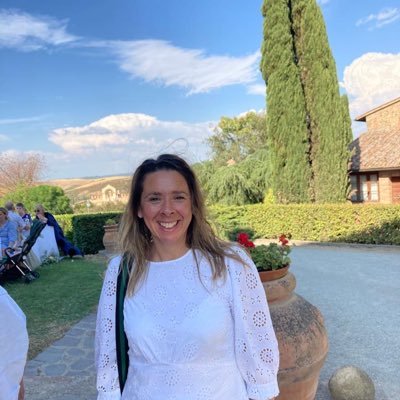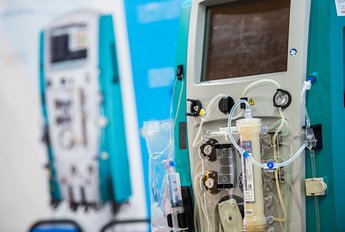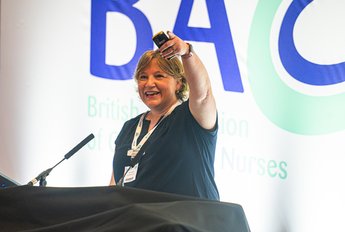Meet the Speakers

#BACCNConf2024 Keynote Speakers
We are excited to present this year's renowned Keynote speakers who will be joining us from across the world to share their stories and experiences.
Contents |
Carli Whittaker
Director of Clinical Skills (Associate Professor) in the School of Health Sciences (SHS) at University of Nottingham
 |
Carli is the Director of Clinical Skills (Associate Professor) in the School of Health Sciences (SHS) at University of Nottingham with clinical role as a Sister on Paediatric Critical Care (PCC) at Nottingham Childrens Hospital (NCH). Carli is the President of the Paediatric Critical Care Society (PCCS), the first nurse and female to hold the role within the Society, PCCS is a professional, multi-disciplinary, membership organisation representing the interests of those delivering paediatric critical care in the UK (United Kingdom) for the benefit of Children and Young People and their families. Carli’s interest predominantly focuses in Paediatric Critical Care with her PhD in the exploration of children’s nurses and the challenges faced. However, Carli is also interested in the clinical skills and simulation delivering equivalent competence in nursing curriculums. Carli is passionate about teaching and learning and extensive knowledge and skills in delivering professional education at both undergraduate and postgraduate level. She works in partnership with the NHS, private and independent sector, and professional, statutory and regulatory bodies. |
All Critical Care Departments strive to ensure that the right patient receives the right care in the right place at the right time, making the best use of available resources. However, at times the demand for Level 3 paediatric critical care outstrips capacity. All acute care providers are expected to resuscitate and stabilise children until retrieval with most young people over the age of 16 expected to be cared for within adult critical care services. During times of pressure on Level 3 PICU beds there is a national agreements to look after under 16 years old in AICU. Guidance for when paediatric critical care resources are constrained can be found in: "A Framework for regional decision making" (PCCS, 2021). Adult capacity is frequently limited and under pressure within its normal workload. There is an acknowledgement that staff caring for CYP under 16 years in AICU facilitates are often doing so out of their normal scope of practice. However , in exceptional circumstances when PICU level 3 capacity is insufficient, alternative interventions need to be considered.
The coronavirus pandemic created numerous healthcare challenges and required an unprecedented deployment of health professionals. Healthcare organizations and staff had to restructure and search for new ways of working on an almost daily basis in order to deal with the rapidly increasing number of patients with complex care needs against the background of shortages in both staff and equipment. Many paediatric units / hospitals wanted to participate in the collective effort and support the ward most affected by the influx of patient patients. Many pediatric nurses were able to play a key role in the treatment of adults with COVID-19 by volunteering to work in critical care units. Resilience, flexibility, and creativity became the watchwords for frontline health workers, whose ability to adapt was a major factor in ensuring the safety of the protocols put in place and the continuity of patient care. Prior to the COVID-19 pandemic most mutual aid situations were likely to have been AICU supporting PICU where escalating demand and or resources (which may include staff, equipment, services or supplies) were required. Post COVID we are in a space where mutual aid is likely to be more of a two-way process to ensure safe provision across a system of critical care, irrespective of whether this is for COVID-19, emergencies or elective patients requiring adult and or paediatric critical care.
Complex paediatric health conditions are increasingly associated with survival into adulthood resulting in more youth with complex care needs. This has led to increasing numbers of children with life-limiting conditions transitioning to adult healthcare survives and there are concerns that transition may lead to reduction in care quality and increases in emergency and critical care admissions. The age of transfer to adult services is often flexible, depending on the young person’s circumstances and their primary specialty. A proportion of this population will require care and input from adult critical care services (ICS, 2022).
The BACCN have invited Carli Whitaker the current president of the Paediatric Critical Care Society to #BACCNConf2024 to discuss and explore how critical care nurses can collaborate in this relative new space of mutual aid and or supporting this particular group of patients. Carli is the first Critical Care Nurse to hold the position of President and we are very fortunate to have her sharing her knowledge and experience with us in Aberdeen.
Professor Aisha Holloway
Professor of Nursing Studies, Co-founder & Co-Director of Edinburgh Global Nursing Initiative
 |
Professor Aisha Holloway, Chair of Nursing Studies, provides strategic leadership to support the propagating and delivery of the School and College academic, research within the Subject Area. Leading learning, teaching and research activity at all levels in the disciplines relevant to Nursing Studies including internal- and external-facing dimensions, and including local, national and international contexts. Directly responsible for the management, leadership and effective administration of activities and resources of the Edinburgh Global Nursing Intiative and research programme contributing to the development and implementation of the School and University strategic plan. Aisha is the Co-founder and Co-Director of the Edinburgh Global Nursing Intiative (EGNI) and holds a number of Advisory and Board roles within the UK and Internationally. Her overarching research programme has two distinct elements: 1) a global public health and alcohol related harm and 2) nursing workforce with a strong professional health policy and political nurse leadership focus. The main aims of both programme are to reduce the risks and harms of alcohol in society, influencing and shaping alcohol policy alongside alongside, development of an evidence base focused on global political nurse leadership. Programme of research funding by MRC-PHIND, NIHR-PH, CSO, ESRC, NIHR-GCRF and Alcohol Change UK as well as others. |
Sarah DiGregorio
 |
Sarah DiGregorio is the critically acclaimed author of Early: An Intimate History of Premature Birth and What It Teaches Us About Being Human and Taking Care: The Story of Nursing and its Power to Change Our World. She is a journalist who has written on health care and other topics for the New York Times, the Washington Post, the Wall Street Journal, Slate, Insider, and Jezebel. She lives in Brooklyn, New York, with her daughter and husband. For more information please visit her website. Sarah will join Aisha Holloway in conversation from her home in the US, to discuss her book Taking Care and how a non-nurse was able to so effectively capture the essence of nursing. |




